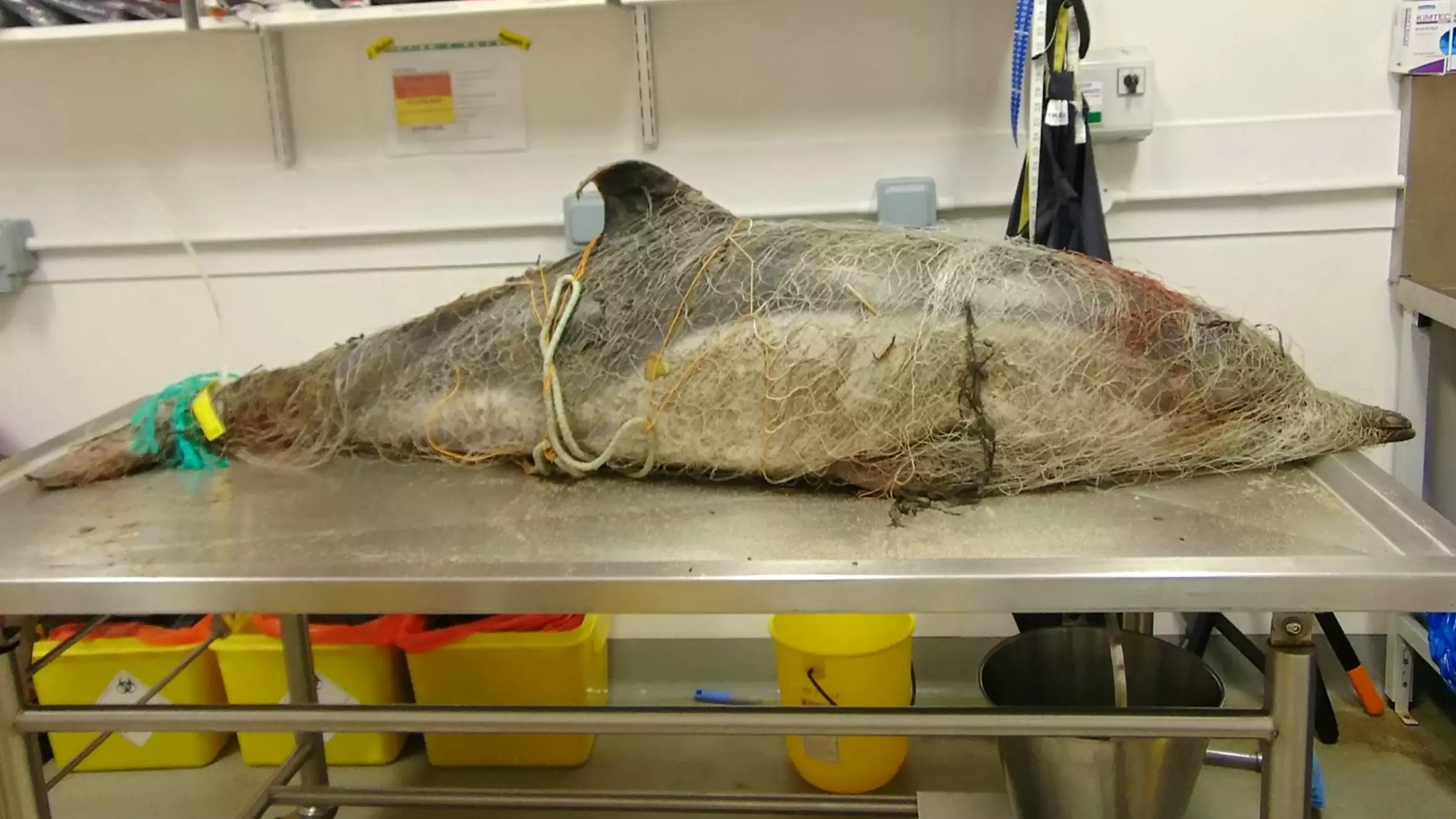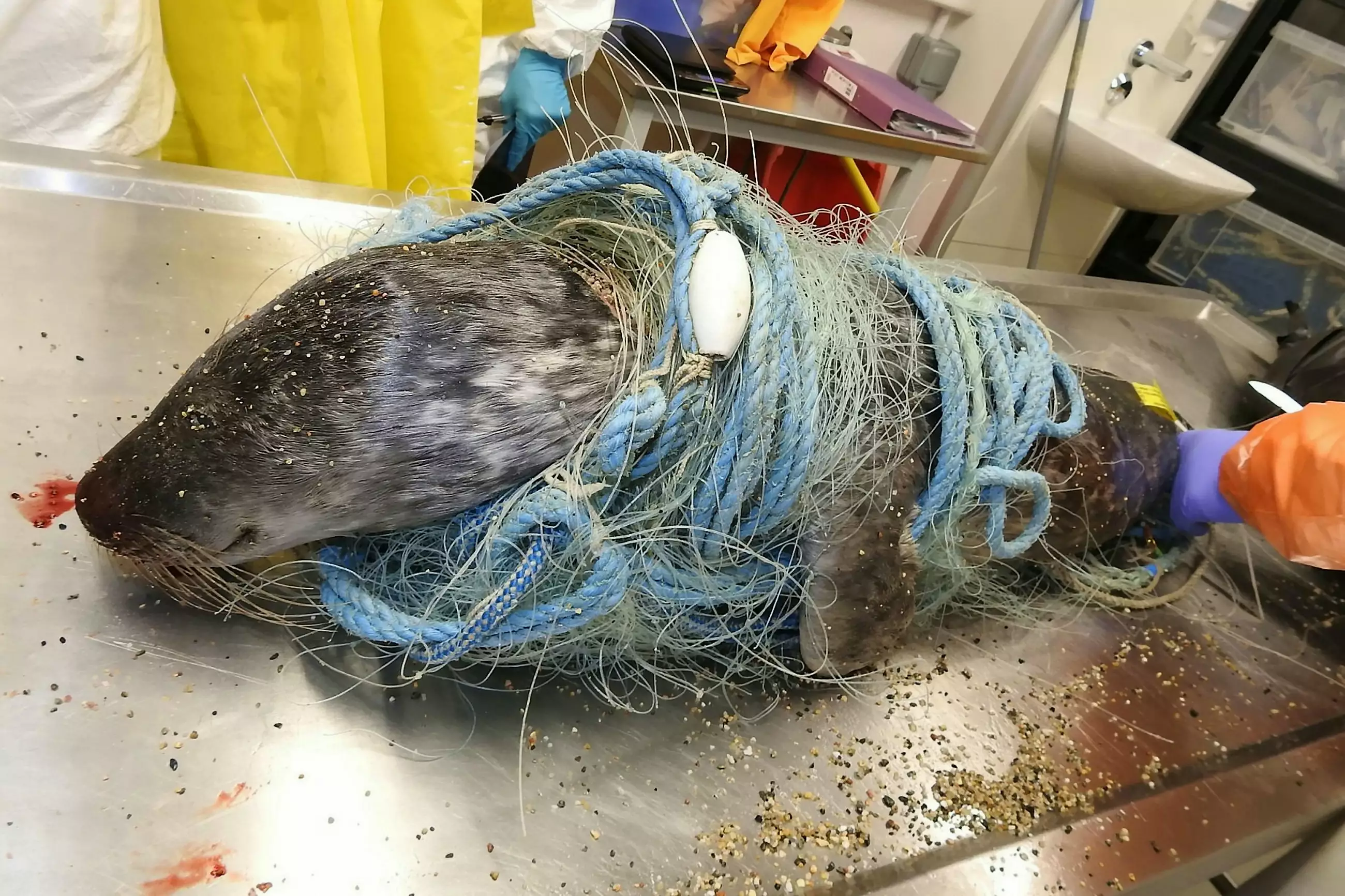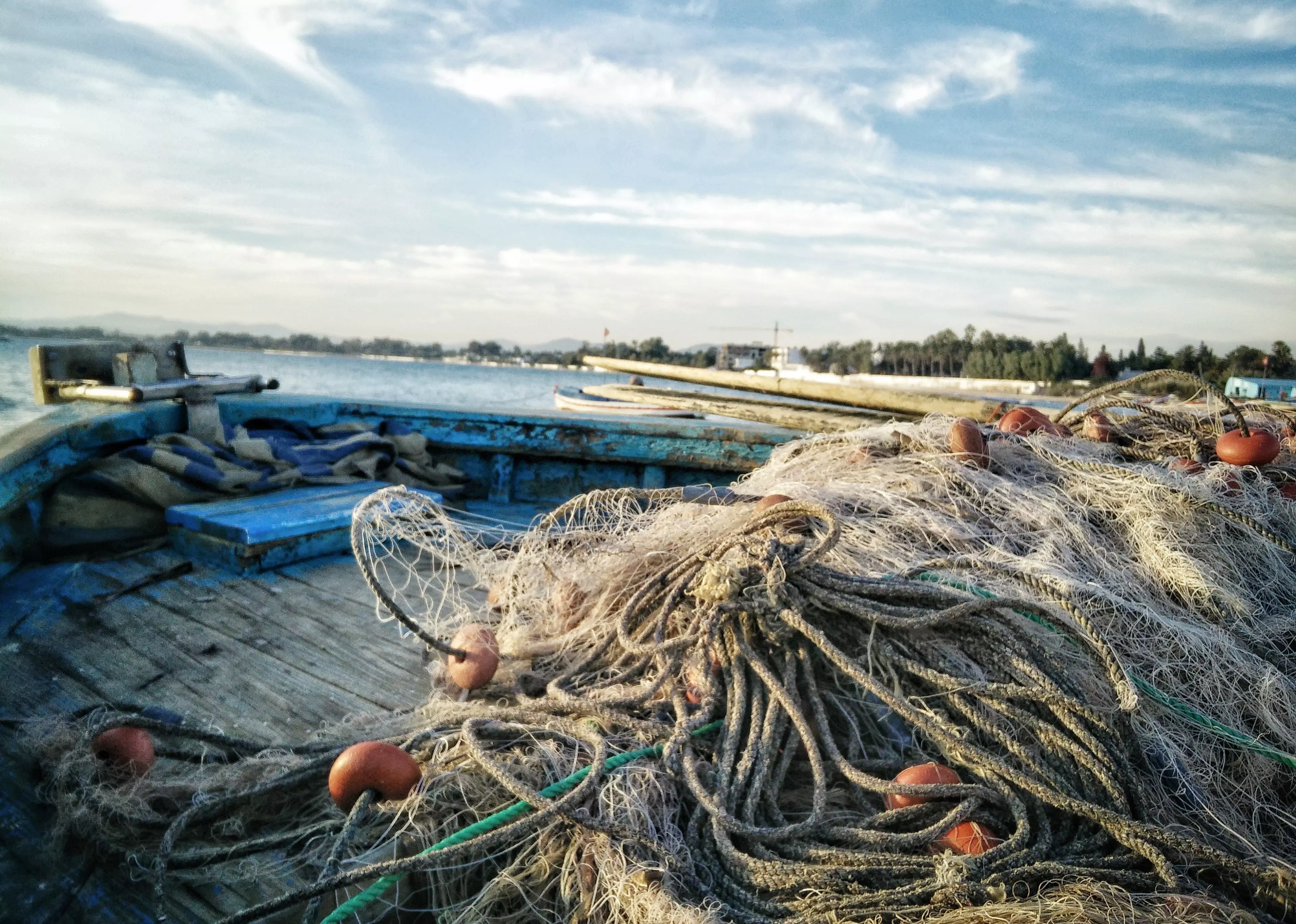
Shocking pictures of a dead dolphin and seal wrapped in discarded fishing nets have been released as part of a new campaign to highlight the damage discarded waste has on marine life.
Vet James Barnett, who works at the Cornish Seal Sanctuary in Gweek, explained that while plastic is a threat to sea life, he sees these animals wrapped in discarded fishing nets, known as ghost nets, often.
Shining a light on the toll abandoned waste has on the ecosystem, the 57-year-old released the post-mortem photo of a dolphin washed up in Cornwall, completely wrapped from snout to flipper in netting.

James also shared a photo of a seal, who was found washed up near Boscastle, entangled in 35kg of nets and admitted it was the "worst case of animal entanglement" he had seen in his career.
Advert
The vet, who has been treating marine life since the 90s, said: "We don't know how big a problem microplastic is yet. Microplastics is a totally unknown quantity.
"We are not yet able to determine how badly it is impacting the animals' health. I think it is something further studies over the coming years will be able to say."
"Seals are very curious animals and they will investigate nets floating in the water or attached to the seabed and can get entangled in them."
Ghost nets, the discarded or lost nets floating in the water, are a huge problem for seals and he said he sees serious cases of entanglement every year.

The cut marks found on the bodies of marine mammals are often the telltale signs that an injured animal has become entangled.
Advert
Last year, James autopsied nearly 30 cetaceans which had been found stranded on beaches and around a quarter of them were victims of bycatch.
He said: "We have not found much evidence of plastic in seals. The biggest killers are probably bycatch and entanglement."
Throughout his career, James he has carried out 225 necropsies on cetaceans of 11 different species, 78 seals and one basking shark, the first of its kind in the UK.
"It's a passion," he said. "My work helps highlight the issue around bycatch, entanglement and marine plastic and pollution. It makes my life more real and meaningful."
Featured Image Credit: SWNS